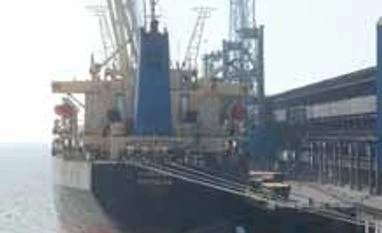The latter say this is risky, given the huge working capital loan the company carries, after last week’s debt recast approval.
“Liquidity is a problem for the shipping industry overall, due to the slowdown. Earlier, we used to get advances at various milestones when building the ships. Now, we will be accepting payments upon delivery of the vessels,” said Dhananjay Datar, chief executive officer of ABG. “Also, oil and gas exploration activity is strong globally and so, demand for vessels and rigs catering to that segment is robust. Due to this, we do not see any cancellations in this segment.”
Also Read
Improving economic conditions in Europe and increased exploration activity in West Asia has pushed up demand from the offshore segment in recent months. “Most of our offshore contracts are overseas orders,” Datar added.
Issues
Though bullish demand from the offshore segment hints at an assured business for ship building companies in the near term, analysts feel ABG is not in a position to implement a ‘no advances’ strategy when its inventory is high, cash flows are negative and loans are more towards working capital.
At the end of FY13, ABG’s inventory was Rs 4,360 crore, while its cash flows were negative for two years.
“Most of the loan recast recently is for working capital. As such, our long-term loan is only Rs 2,000 crore,” was Datar’s defence. “It is important for the company to work towards reducing its inventory,” said an analyst with a local brokerage. “It cannot run on working capital loans for long. It has to generate positive cash flows.” As on March 31, ABG had a total order book of Rs 16,000 crore, providing strong revenue visibility. Of this, Rs 11,000 crore, an amount almost equal to the debt recast recently, is mainly towards the offshore and rigs segment, currently under execution. The remaining orders, for bulk carriers, are yet to commence, said Datar. About 30 per cent of the total offshore order book of ABG is currently exposed to Essar Group, one of its primary clients.
“Considering 70 per cent of the offshore orders have been taken without any advances being received, it seems a very risky strategy,” said Sudarshan Shreenivas, associate director-corporates, India Ratings. It was delayed payments from Essar that had put ABG into financial stress earlier. The company then had to go for debt restructuring, cleared only last week.
In the quarter ended December, due to shrinking revenue and increased expenditure, the 27-year-old company reported a net loss of Rs 15.6 crore. At the operating level, too, ABG was in losses.
With shipyards in Surat and in Dahej, Gujarat, ABG mostly builds offshore vessels, including rigs, along with cement and bulk carriers.
Other worries
Analysts say it’s also important to understand the composition of the offshore order book. “The overall shipping market is weak and so it is important to know the inclination of the buyer to take delivery,” said Amit Agarwal, analyst with Kotak Securities.
The company’s Rs 11,000 crore debt recast shows it has given significant bank guarantees. Hence, if unable to fulfill its orders on time, the buyer can invoke these guarantees, said Agarwal.
This explains why ABG was looking for a debt recast close to Rs 11,000 crore when its consolidated debt at the end of FY13 was Rs 4,300 crore.
It is also yet to receive a subsidy payment of Rs 1,000 crore from the government, pending since 2007. “We are helping the government with the necessary documents to speed up the payment but we really do not know by when we will get this amount,” said Datar.
Noting the bullish trend in the shipping sector in the pre-crisis period, the government had introduced a subsidy policy for shipbuilders for a period of five years ending August 2007.
Though the policy has ended long ago, shipbuilders continue to make trips to the government offices to book their subsidy.
All in all, ABG will have to lay its strategies with more caution and keep a close tab on its buyers’ delivery inclination to complete its Rs 11,000-crore offshore order book.
)